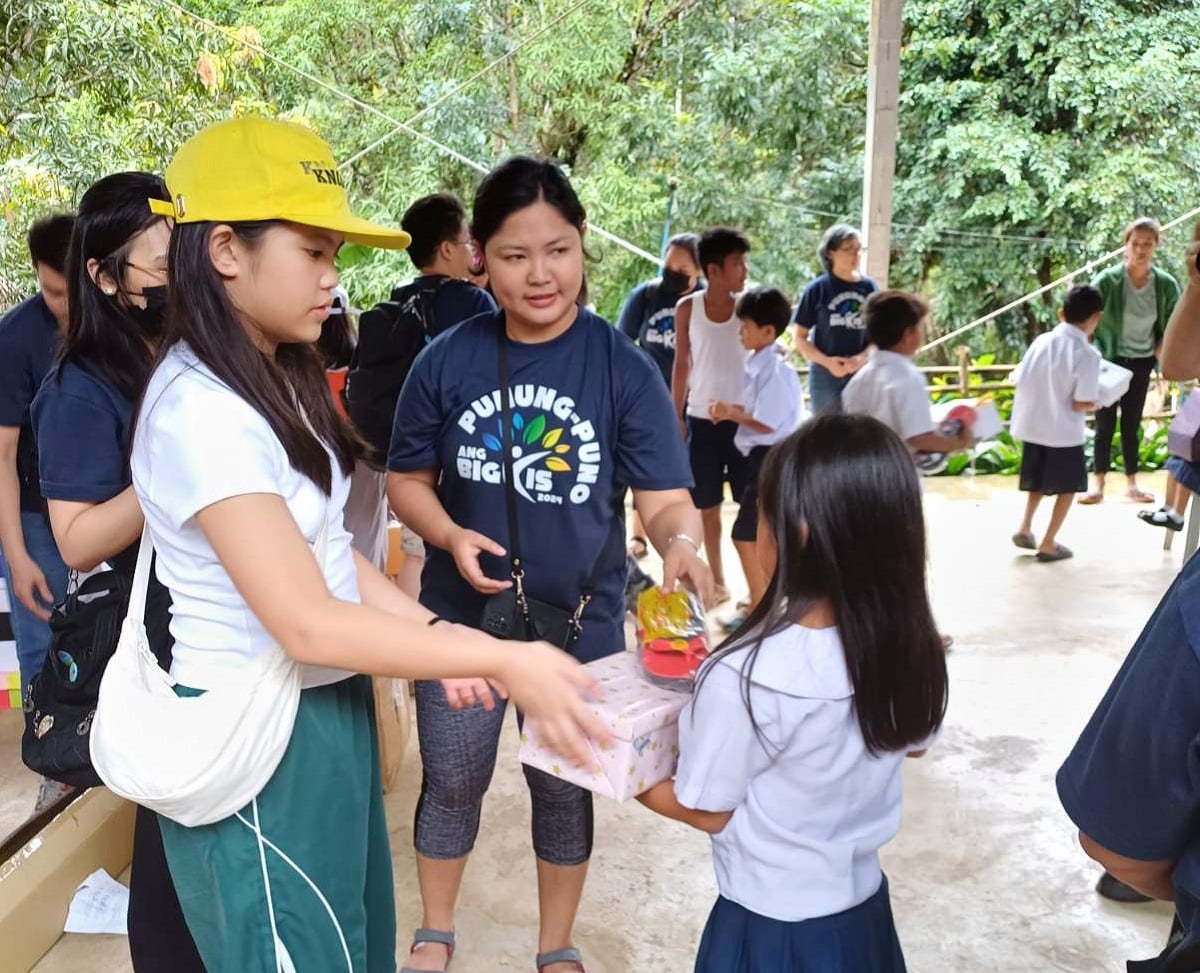Students, communities, private partners as ecological citizens

GIFT OF CONNECTION Students of Laiban Elementary School in Rizal province receive gift shoe boxes containing items for disaster readiness such as whistles, raincoats, and rubber slippers prepared by Miriam College Grade School students. —Contributed photo
MANILA, Philippines — On Dec. 9, 2024, as the northeast monsoon or amihan brought heavy rains, our trip to Barangay Laiban in Rizal province via local jeepney took much longer than usual. We were on our way to deliver shoe boxes to students of Laiban Elementary School.
Project Shoe Box, undertaken by Miriam College Grade School (MCGS) students, has been gifting other schoolchildren in three different barangays in Tanay, Rizal (Laiban, Mamuyao, and Sto. Niño) for the last three years in collaboration with the Environmental Studies Institute (ESI).
The joy of the Laiban students when they opened their shoe boxes could not be contained. The sound of the pouring rain was drowned out by the joyous laughter and the whistles the children made as they rejoiced at the gifts they received. This year, the boxes had items for disaster readiness such as whistles, raincoats, rubber slippers, and preloved toys from MCGS students, who also carefully crafted the boxes.
Why is this activity important for ESI? With Project Shoe Box, connecting MCGS students with local students of partner communities is a way of fostering relationships between communities. These connections are not isolated in themselves but are under a program called Empowered Community for the Forest (ECF) 2.0, which runs a 261.5-hectare forest conservation program within the Kaliwa River Forest Reserve, a watershed area inside the ancestral domain of the Dumagat Remontados, an indigenous community in Rizal.
READ: Gardening as ecological education
Article continues after this advertisementThis conservation program was finalized last year between the Department of Environment and Natural Resources and Miriam College Foundation Inc. Starting in 2024, the first three years of the ECF 2.0 Project is being funded by Forest Foundation Philippines. It aims to reforest and rehabilitate 137.6 hectares of the watershed by planting at least 50,000 native trees.
Article continues after this advertisementThe project has four components: grow forests, grow livelihoods, grow partnerships, and grow advocacy. The project is managed by ESI, which partners and collaborates with local government units, local communities, local people organizations, schools, and company CSR units and individuals, to achieve the program’s goals.
A 10-member team of men and women from Barangays Mamuyao and Sto. Niño is being trained in sustainable forest management. This team will continue to care for the trees after the project is done. A series of capacity-building assessments is made relating to forest management, sustainable livelihoods, and ecotourism, in time creating a knowledge base on the importance of forest and mountain ecosystems in climate change mitigation and adaptation, resilience-building, and water security.
As Miriam College’s 100th year approaches, the school will continue to create spaces and networks that value protection of the integrity of creation, such as developing and engaging students and communities toward becoming ecological citizens. Miriam of Nazareth, teach us your ways and lead us to Jesus. —Contributed